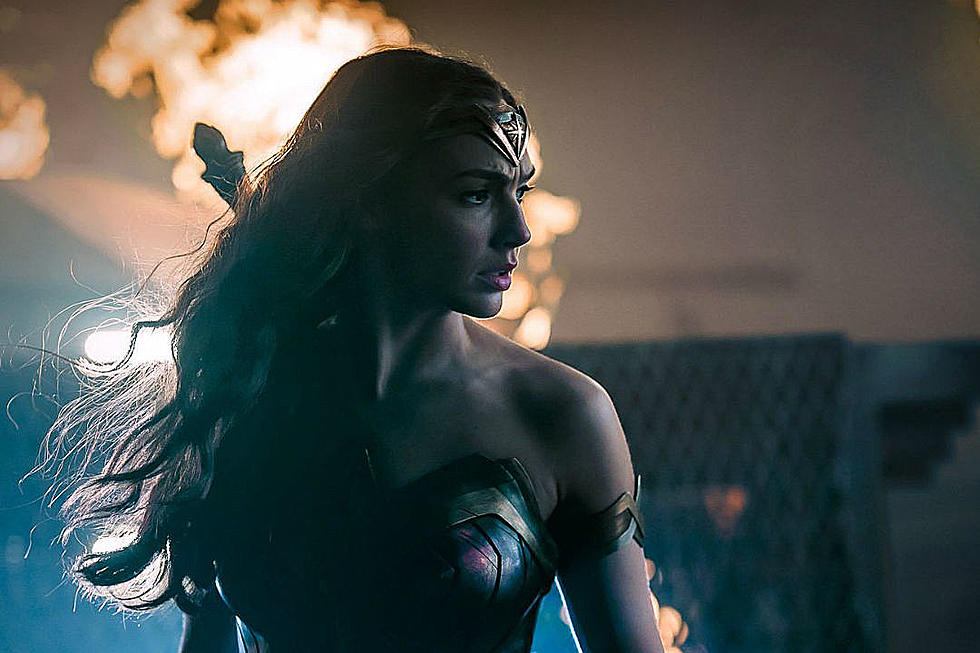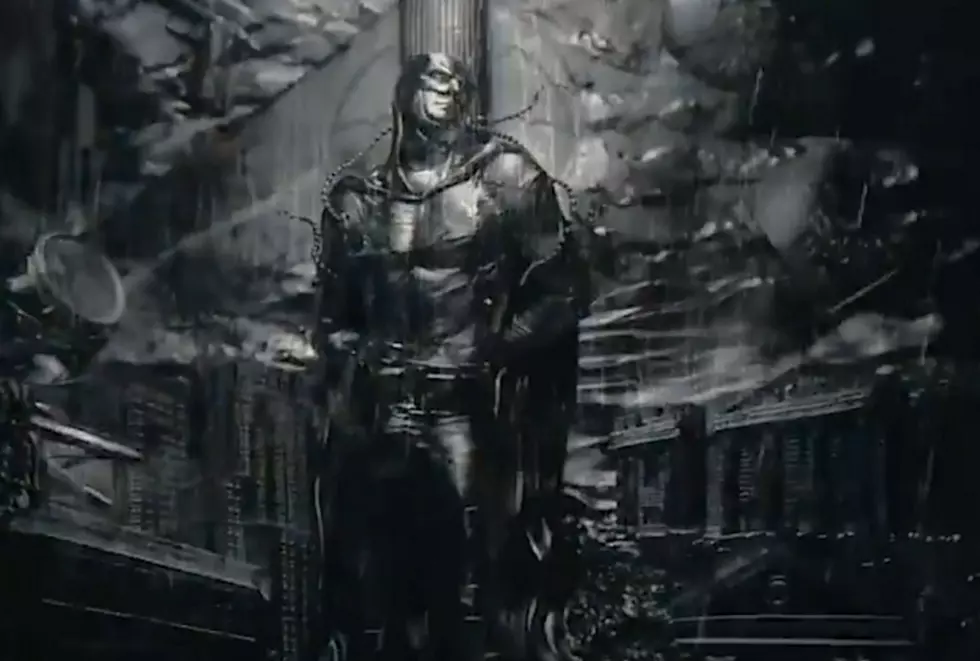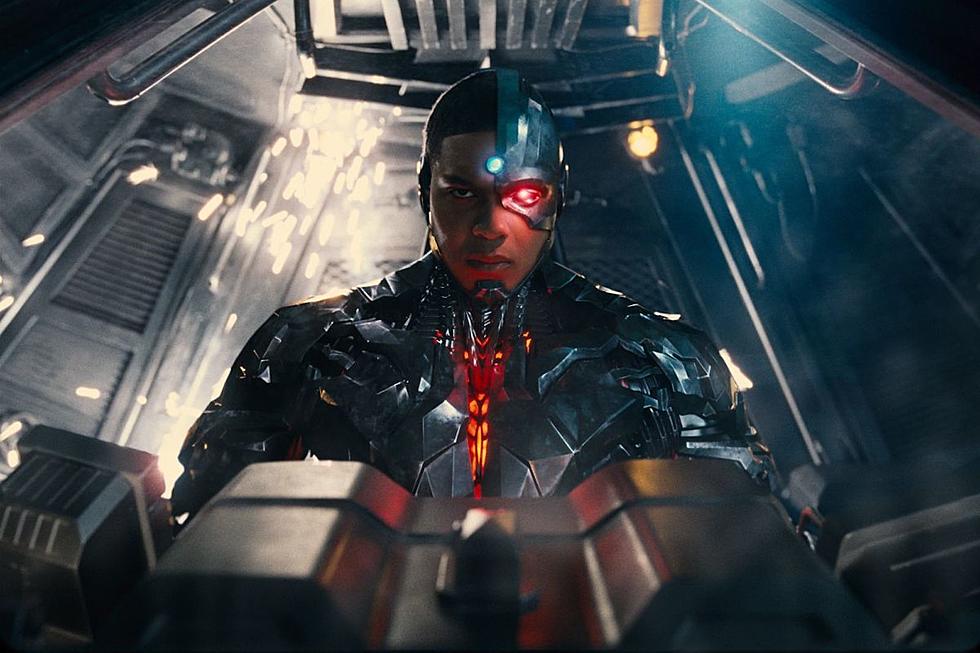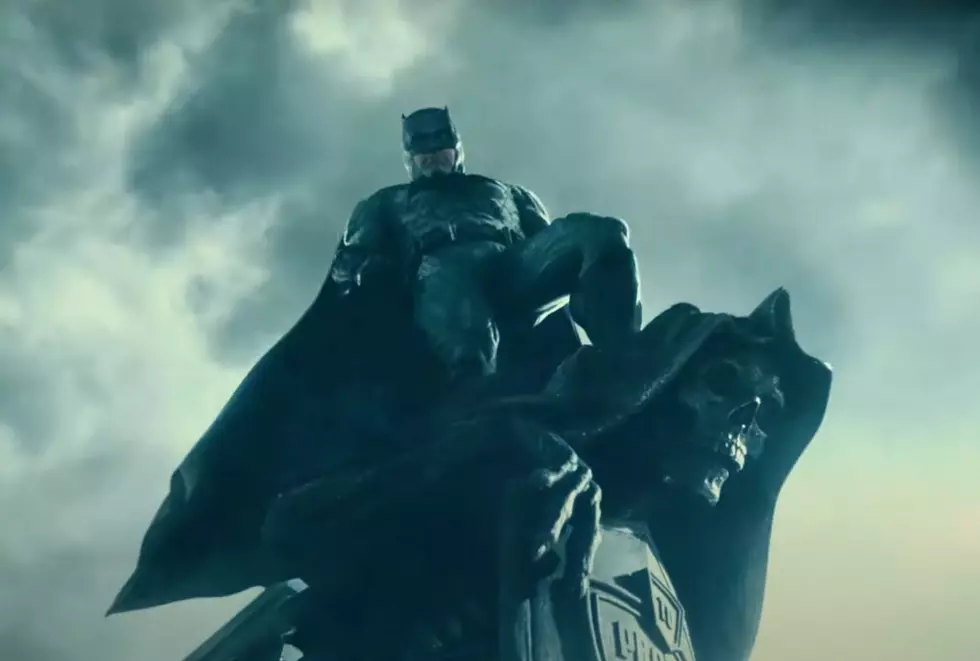
‘Justice League: Crisis On Two Earths’ DVD Is Off the Chain
 Note to our readers: While we're going to try to keep things vague, this article will contain spoilers for the new Justice League movie. Proceed at your own risk!
Note to our readers: While we're going to try to keep things vague, this article will contain spoilers for the new Justice League movie. Proceed at your own risk!
This week saw the release of DC's latest direct-to-DVD animated movie, "Justice League: Crisis On Two Earths," and I'll admit that I was a little skeptical going in. I've only seen a couple of the DC Universe movies, and while "Wonder Woman" was pretty enjoyable, "New Frontier" -- which, like "Crisis," was based on a comic book story I loved--was a little disappointing. Add to that the fact that we've already seen animated takes on DC's classic Evil Parallel Universe formula before--first in "Justice League Unlimited's" watered-down but enjoyable "Justice Lords" episode and more recently in a "Brave and the Bold" that saw Batman teaming up with a heroic Red Hood--and I just wasn't sure how well this one was going to hold up.
After sitting down and watching it, I came away with one conclusion:
This movie is off the chain.Using Grant Morrison and Frank Quitely's "JLA: Earth 2" as a springboard, "Crisis" is essentially an extra-long, extra-awesome "lost" episode of "Justice League Unlimited." That shouldn't really come as much of a surprise, as writer Dwayne McDuffie was writer, producer, or story editor for the vast majority of "JLU" episodes, having a hand in 69 of the 91 episodes produced. Specifically, with its focus on the Justice League's construction of the Watchtower and an ending that sees them expanding their roster to include heroes like Aquaman, Red Tornado and Firestorm, this is the story that bridges the gap between "Justice League" and "JLU." And like "JLU," it excels at dropping in fun references to the larger DC Universe.
Yes, getting to see second and third-string characters in motion really just amounts to set dressing, but when you get right down to it, the entire reason that parallel worlds in comic books exist at all is to see different versions of the characters you already know. It's just really cool to see a hero fight an "evil twin" version of a hero, and that's something that McDuffie and directors Sam Liu and Lauren Montgomery just run wild with.
The perfect example is the first big fight, which is not just a textbook example of how to do animated super-hero team battles, but also drops eye candy like you wouldn't believe. Fifteen minutes into the movie, and the Justice League has gone to the Crime Syndicate's Earth, and the very first thing they do is fight an evil version of the Outisiders and Justice League Detroit, including an evil version of Black Lightning that looks like his own '70s costume mashed up with Luke Cage:

And that, my friends, is fantastic.
And it's just the start: There is a lot of fighting in "Crisis on Two Earths," and by the nature of the story, it's peppered with cameos from everyone from... well, from the Outsiders to Justice League Detroit. That's about as obscure as you can get and still call it a Justice League movie. I think it's fair to say that the fights are the focus--again, that's sort of the entire point--and they're beautifully done, especially as Wonder Woman just straight up uses pro wrestling moves to suplex her way through the Crime Syndicate.
As such, it lacks some of the sophisticated storytelling of "Earth 2" -- SPOILER WARNING: The good guys win instead of finding out that the nature of their fictional universe is such that good always wins, meaning that their counterparts are in a universe where evil always wins and even acts of good are twisted around -- but even that gets a pass. It is, after all, far more in tune with "JLU," and when you don't actually call your movie "JLA: Earth 2," you can get away with a little more than if it was meant to be a straight adaptation.
One of the things it does preserve from Morrison and Quitely's version, though, is its portrayal of the Martian Manhunter.

Morrison's "JLA" was one of the few books that treated Martian Manhunter like what he was, which was a guy with all of Superman's powers plus he can turn invisible, shapeshift and read your mind. In other words, he's a total badass, and while "Crisis" lacks the incredible, crushing defeat he dished out to Ultraman in "Earth 2," he's very much in the spotlight here, in terms of both fighting and character development.
As to the voices, the fact that it watches so much like "Justice League Unlimited" (albeit with different designs) means that the different actors feel a little off through no part of their own. William Baldwin's Batman, for example, felt quite a bit off, but after the past 18 years of the animated DC Universe, any Batman voice that's not Kevin Conroy feels off. The other voices, though, are pretty enjoyable: Brian Bloom's mafioso-inspired gangster movie Ultraman is a few shades over the top, but Mark Harmon's farmboy twang makes for an interesting take on Superman, James Woods is pure fun as the nihilistic Owlman, and Gina Torres' sultry, sociopathic Superwoman is downright perfect.

Which isn't to say that the movie is without its flaws. Even if you're willing to look past the emphasis on big, pretty fights (which I am, as they're great fun and don't particularly come at the expense of the equally fun plot), there's a pretty big misstep in something that ought to be second nature to the people who write the DCU movies. Namely, Batman, who makes a couple of choices at the end of the movie that are best described as morally dubious.
One of them is explained away very easily, but the other essentially comes down to Batman not really caring if someone dies as a direct result of his actions. The best case here is that he was willing to sacrifice one person to save the entirety of reality, but the fact that he lies about it rather than letting everyone know the score from the start means that instead of a character making a heroic sacrifice, Batman's essentially killing someone to achieve his goals. That is Capital-W Wrong, and if the rationale here is that it's a fitting punishment for one of the decidedly evil Crime Syndicate members, that's just not how Batman works.
This is a problem that shows up in a lot of adaptations, despite the fact that "Batman doesn't kill and values all life" seems like it would be the easiest thing for writers to grasp, and the fact that McDuffie -- a veteran comics writer who gets everything else so right -- would make that mistake in such a complete and irreparable way is both surprising and genuinely bothersome.
It's enough to completely break the movie, but fortunately for "Crisis," it's surrounded by a lot of other stuff that's well worth seeing, and balances out to being an incredibly enjoyable movie with five minutes that you have to completely ignore. After all, every time I start to get mad over the stuff with Batman, I just think about the evil version of Vibe pop-n-locking into a hadouken, and everything just seems a little better.
More From ComicsAlliance









